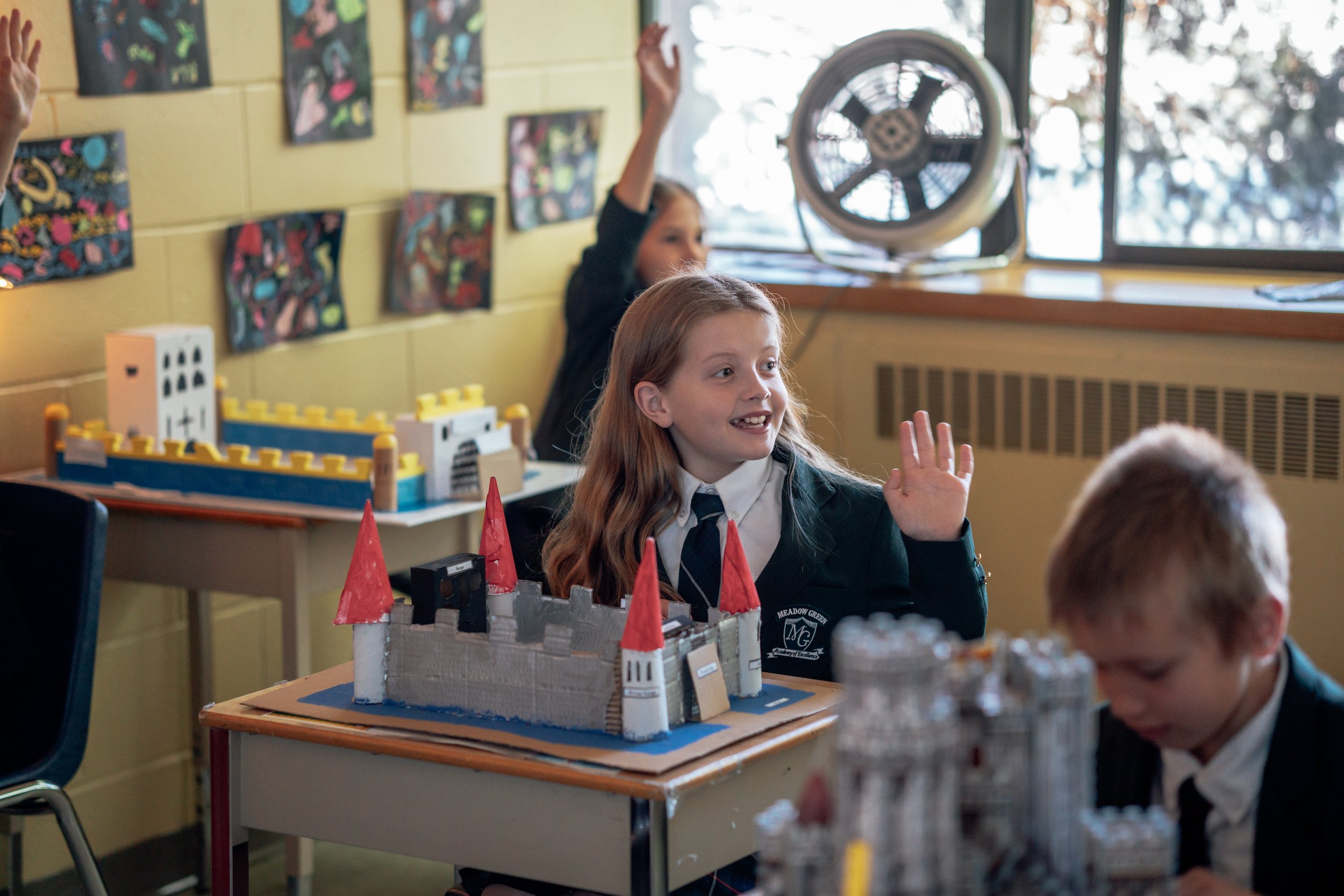Grades Four to Six

Curriculum
In Grades 4-6, a comprehensive curriculum is followed that emphasizes strong academics, thinking skills and practical applications. Classes are equipped with SMART Boards and students have regular access to the computer lab and are able to incorporate these technologies into their learning.
-
The focus is on oral communications, vocabulary development, reading comprehension, written language, grammar and creative writing. Students learn how to independently plan, revise and edit their work and they participate in speech and writing competitions. Students are given group and individualized programs based on their strengths and abilities. Ongoing assessments ensure that key concepts and skills are grasped.
-
The Mathematics program is organized to ensure the incremental development of each skill. Place value, computational skills, fractions, decimals, ratios, percent, geometric properties, number theory, measurement, statistics, graphing and probability are some of the areas covered. Emphasis is placed on the importance of process, format, analytical thinking and sequencing in daily work. Students complete drill work and problem solving and are able to work above grade level or receive additional assistance if needed.
-
Students acquire a broad scientific understanding and technological capacity in all areas of Science. By completing various classroom experiments, investigations, research projects and science fair activities, the students develop a great deal of knowledge which they apply to new situations. Topics in the areas of environmental science, biology, chemistry, physics, and space science are studied at a high level.
-
Students will seek to examine and understand communities, from the local to the global, their various heritages, and the nature of citizenship within them. The acquisition of key social science concepts, including change, culture, environment, power and the dynamics of the marketplace are studied. Ancient civilizations, Canadian history, Canadian geography and units related to a study of a country within a continent are studied each year. Different viewpoints are evaluated and information is examined to learn how to make decisions and solve problems.
-
MGA students will read a wide variety of materials, appropriate to their age level. They develop strong oral communication skills and explore further aspects of the written language, including grammar.
-
Education in the Arts is essential to a student’s intellectual, social, physical and emotional growth. Our Visual Arts program includes the traditional fine arts of drawing, painting and sculpting. Students learn to analyze and appreciate art work from various historical periods and styles.
-
The guitar will be studied and students continue to grow in their appreciation of music. They learn musical notation and theory and are given the opportunity to perform at school concerts.
-
Students will become familiar with various programs and functions, equipping them for our technologically advanced and fast-paced society. Wireless access throughout the building allows the students to use their own personal laptops in all classes. SMART Boards are incorporated across all disciplines and enhance learning.
-
A comprehensive Physical Education program rounds out the students' learning experience. Intramural and extra-curricular sports activities and teams are available. Fitness, good sportsmanship, and high-level skills are developed.
-
Drama skills are encouraged as each class continues to prepare presentations for varying school assemblies. Two high-level drama productions are performed each year, one at Christmas and one in the Spring. Highly qualified, specialty teachers help the students to develop their acting, singing, dancing, and production skills.